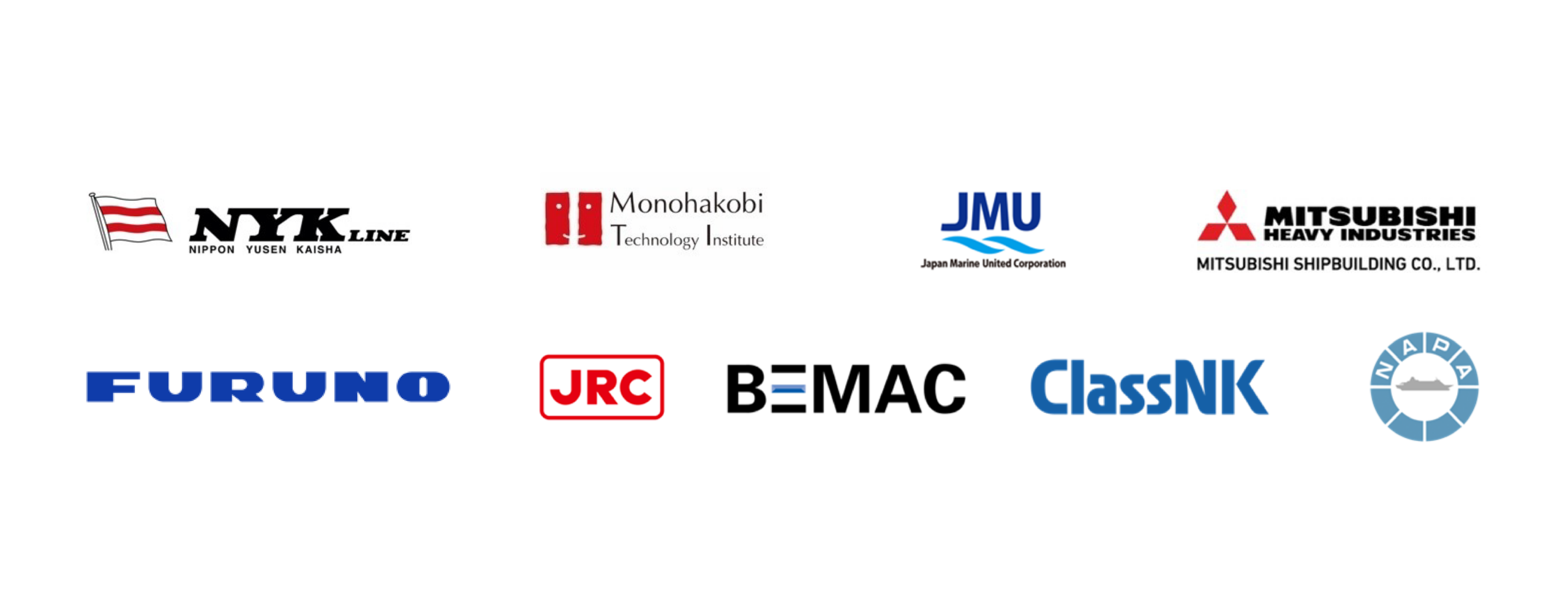August 8, 2022
Japanese shipping technology leaders in collaboration to develop digital engineering platforms for sustainable maritime logistics

University of Tokyo, NYK, MTI, JMU, Mitsubishi Shipbuilding, Furuno, Japan Radio, BEMAC, ClassNK and NAPA join forces to build a co-operative simulation platform, focusing on decarbonization technology, autonomous operations and shipyard efficiency
Tokyo, Japan – August 2022: A group of Japanese technology leaders 1 have come together to establish a cooperation program called “Maritime and Ocean Digital Engineering” (MODE), at the University of Tokyo from the 1st of October. The program aims to promote and enhance digital engineering technology and skills for the maritime sector by building cooperative simulation platforms.
Japan’s maritime industry is facing challenges, such as developing and implementing new technologies in the context of global decarbonization, maintaining shipping services by integrating autonomous ships to assist seafarers and improve safety, and ensuring high productivity among increasing complexity in ship design and manufacturing processes.
MODE aims to address these challenges by using model-based development (MBD) and model-based systems engineering (MBSE), which are increasingly being introduced in the automobile industry.
MBD and MBSE approach problems by examining the functions of products and components as computer models, and then checking their behaviors through simulations. MBD and MBSE enable not only the optimization of complex system designs, but also the creation of a collaborative development process (“Maritime and Ocean Digital Engineering”) involving a wide range of stakeholders, including shippers and operators.
The program for research and education on MBD and MBSE for the maritime field will be established by a forming broad network between the Graduate Schools of Frontier Sciences and Engineering at the University of Tokyo and other universities and research institutes around the world that are promoting advanced engineering initiatives, and relevant experts from other industries such as automobiles, aerospace and aviation.
The program aims to develop, implement, and upskill users in the deployment of new technologies. It is also expected to expand into maritime fields such as offshore wind power generation and subsea resource development.
An inaugural symposium is scheduled for the afternoon of October 4, 2022, in Ito Hall at the University of Tokyo. MODE is committed to supporting the development of next-generation technologies and skills in Japan’s maritime sector, and to act as a platform for collaboration between industry, academia and government.
*****
1 NYK Group company MTI Co., Ltd., Japan Marine United Corporation, Mitsubishi Heavy Industries(MHI) Group company Mitsubishi Shipbuilding Co., Ltd., Furuno Electric Co., Ltd., Japan Radio Co., Ltd., BEMAC Corporation, ClassNK and NAPA Ltd.
About NAPA
In its over 30 years of operation, NAPA has become a global leader in developing and scaling software, services and data analysis for a safer, smarter, and more sustainable maritime industry. NAPA operates globally, with 190 employees in eleven countries in Europe, Asia and the Americas, and has a turnover of €23.8 million. To date, NAPA has 420 user organizations for its design solutions, nearly 3,000 installations onboard vessels and a growing number of subscribers for its cloud-based fleet services.
For more information, visit www.napa.fi
Media enquiries:
Ariane Perron Langlois
BLUE Communications
T: +44 1865 52 2329
E: ariane.perronlanglois@blue-comms.com